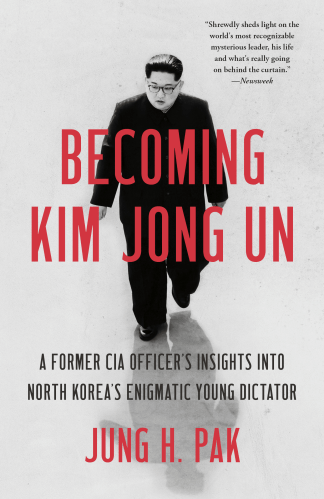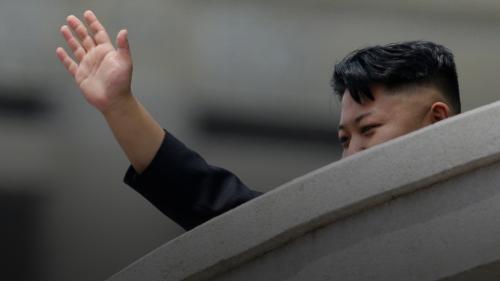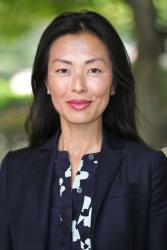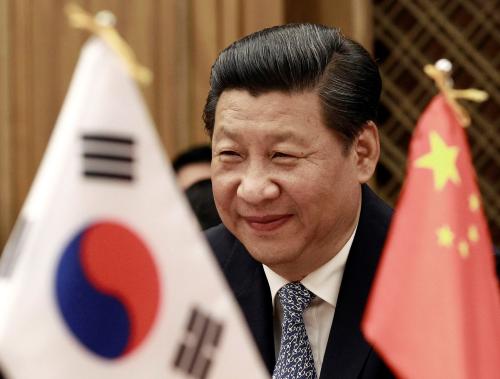As a grandchild of Kim Il Sung, still revered even by North Korean defectors, Kim Yo Jong has revolutionary blood coursing through her veins, Jung H. Pak argues. This piece originally appeared in The Washington Post.
Amid general uncertainty about the health of North Korean leader Kim Jong Un, speculation about who might replace him has reached a fever pitch. Commentators seem especially intrigued by the role of his sister Kim Yo Jong, who has drawn attention by her highly public role in the regime’s activities.
Yet some analysts insist that her gender makes her a non-contender, arguing that a deeply patriarchal society like North Korea, infused with traditional Confucian values, would never accept her as Kim 4.0.
In fact, she might be more prepared to take over than we think.
What the skeptics forget: Confucianism also stresses the importance of filial piety and respect for one’s ancestors — which Kim Yo Jong has in spades. If she has to take over in a pinch, she will have decades of regime propaganda and ideology to back her up. As a grandchild of Kim Il Sung, still revered even by North Korean defectors, Kim Yo Jong has revolutionary blood coursing through her veins.
Moreover, North Korea has long celebrated itself as a pure race, as noted scholar of North Korean propaganda B.R. Myers has persuasively argued. Kim Yo Jong, like her brother, is a part of the “pure” bloodline directly descended from Mount Paektu, a sacred place where the Korean race supposedly originated, and where regime accounts say Kim Il Sung and his band of guerrillas had a base to fight against Japanese imperialists and Kim Jong Il was born. Notably, when Kim Jong Un traveled Mount Paektu on a white horse in October 2019, a visit steeped in Kim dynasty symbolism, his sister was right by his side. Her presence there almost certainly was a calculated move designed to place her at the epicenter of power.
If she becomes the leader now, Kim Yo Jong has at least as much bureaucratic experience under her belt as her brother did when he became leader in December 2011, after their father’s sudden death. With at least six years in the regime in various leadership positions, she is likely to have honed the political acumen that her father in 2001 allegedly boasted about to Russia’s ambassador to North Korea.
While her public profile has risen in recent years, she has been a constant presence in the regime. She reportedly accompanied her father and her brother to various site visits and party meetings during the latter’s grooming process. In 2014, she became the deputy director of the Korean Workers’ Party Propaganda and Agitation department; three years later, she rose to the position of an alternate member of the Politburo, a key decision-making body. That exalted status doesn’t suggest that her gender is an issue for the people who matter.
She received international publicity when she acted as her brother’s envoy and attended the opening ceremony of the Winter Olympics in South Korea in February 2018 to kick off Kim Jong Un’s charm offensive. She stood next to her brother as he was about to sign the Singapore statement at his first summit in June 2018 with President Trump, next to whom Secretary of State Mike Pompeo stood. She was seen lurking in the shadows and behind corners at her brother’s second meeting with Trump in Hanoi, further illuminating her status as a trusted confidante and caretaker for North Korea’s leader.
Those episodes of diplomacy were revealing for another reason. Her body language and interactions with much older men betrayed her sense of herself as a person deserving deference. Observers noted a physical stance that communicates a high level of self-confidence. During a meeting in Seoul with South Korean officials, Kim Yo Jong’s travel companion Kim Yong Nam, the nonagenarian nominal head of state, gestured for her to sit down first, an honor reserved for the most senior person. That suggested that he — and probably other elderly officials in North Korea — understood where the power lies.
Finally, Kim Yo Jong’s years in the regime and her privileged status have given her a first-row seat into how a leader uses repression and fear to keep the elite in line. Kim Jong Un has purged hundreds of officials since he came to power; he killed his half brother Kim Jong Nam and his uncle Jang Song Thaek. But brutality doesn’t run only through the Y chromosome in the Kim family. She was also designated by the United States for “severe human rights abuses” and “rigid censorship policies” that conceal the regime’s “inhumane and oppressive behavior.”
Kim Yo Jong certainly has some deficits. Her mastery and control of the military and security apparatus are unknown, for example. But it would be a mistake to assume that a Kim woman doesn’t have the aggressiveness and the institutional and ideological support to take the reins if Kim Jong Un is dead or incapacitated. Even if Kim Jong Un shows up tomorrow, we should still be taking his sister seriously.
The Brookings Institution is committed to quality, independence, and impact.
We are supported by a diverse array of funders. In line with our values and policies, each Brookings publication represents the sole views of its author(s).







Commentary
Why we shouldn’t rule out a woman as North Korea’s next leader
May 4, 2020